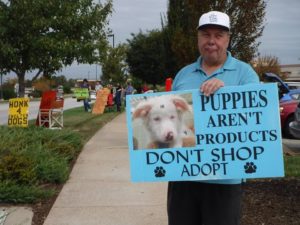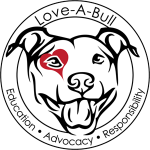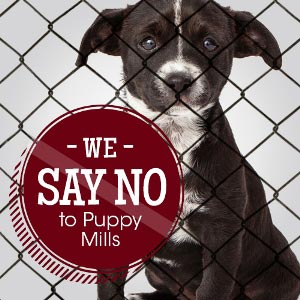

Why is this important to you? Well, those records, which include thousands of inspection reports for thousands of facilities like zoos, laboratories and commercial breeders, have been used to ensure that responsible parties toe the line when it comes to caring for the animals in these facilities. They have also been used by animal welfare advocates to report neglect and abuse and rescue those animals who end up in the most horrific conditions imaginable, specifically at puppy mills. This is data collected during USDA inspections of these facilities, and the loss only benefits recurrent animal abusers.
According to the HSUS & ASPCA:
• An estimated 167,388 breeding dogs are currently living in USDA licensed commercial facilities.
• There are an estimated 10,000 puppy mills in the US which include licensed and unlicensed facilities.
• Over 2 million puppies are bred in mills each year.
• There are over 35,000 pet stores in America
• 99% of puppies sold in a pet store come from a puppy mill
• An estimated 1.2 million dogs are euthanized in shelters every year.
Puppy mills will breed all types of dogs, with the sole purpose of making as much profit as possible, which limits the amount of money spent on the health and well-being of the dogs. Many times, dogs from puppy mills live in squalor, in their own feces and urine. They generally do not have protection from the elements and are confined 24 hours a day in metal wire cages. Puppies can be sold for between $500 and $3000 and are typically sold in poor health, with some dying due to the horrible living conditions they were bred and kept in. The mother of these puppies, will spend her entire life in a tiny cage, never being pet, walked or even treated like a dog and then killed when she can no longer produce.
Love-A-Bull, has been honored to have our volunteers assist in deployments when these types of breeding facilities, hoarding facilities and sanctuaries are busted and the dogs rescued. With so many dogs entering the shelter system and so many not leaving, Love-A-Bull strongly urges adoption over buying a dog from a store or backyard breeder. There are literally, millions of dogs dying in our shelter systems each and every year. Adopting saves lives, keeps money out of the pockets of backyard breeders and puppy mill owners AND helps make room for the other animals that also need rescue. Love-A-Bull is proud to take part in Puppy Mill Awareness Day each year in September, to help spread the word about the horrible truth for exactly where that “doggy in the window” comes from.
For more information on how to stay up-to-date on puppy mill issues, we highly suggest following Bailing Out Benji and Puppy Mill Awareness. Bailing Out Benji is a small non-profit organization that is dedicated to educating the U.S. about the puppy mill problem and how to combat it. Puppy Mill Awareness aims to encourage the public not to buy puppies from pet stores or online and to raise awareness about Puppy Mills.
TAKE ACTION: We need YOU to call the USDA and demand they reinstate the inspection reports so organizations like Bailing Out Benji and Beagle Freedom Project can keep monitoring the for-profit businesses that aren’t taking care of the animals they make money off of.
Call the USDA NOW at (844) 820-2234 and use your voice for these voiceless! Keep calling! Ask your friends to call! Let’s get the USDA to overturn this senseless decision! It only takes a minute and they are very polite when you call. Please call on behalf of the animals who already have so little protection under the law to begin with.


